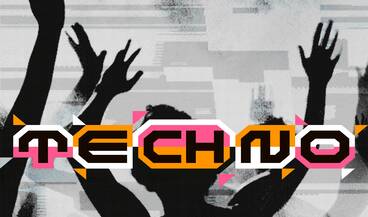Today
10:00 - 17:00
10:00 - 17:00
openinghours.days.long.tuesday Open till openinghours.days.long.wednesday openinghours.openfromto.long
openinghours.days.long.thursday openinghours.openfromto.long
openinghours.days.long.friday Open till openinghours.days.long.sunday openinghours.openfromto.long
openinghours.days.long.monday closed
openinghours.days.long.tuesday Open till openinghours.days.long.wednesday openinghours.and openinghours.days.long.friday openinghours.openfromto.long
openinghours.days.long.thursday openinghours.openfromto.long
openinghours.days.long.saturday Open till openinghours.days.long.monday closed
Good Friday 18.04.2025 10:00 - 17:00
Kars Saturday 19.04.2025 10:00 - 17:00
Easter 20.04.2025 10:00 - 17:00
Easter Monday 21.04.2025 10:00 - 17:00
Sechseläuten 28.04.2025 closed
Labour Day 01.05.2025 10:00 - 19:00
International Museum Day 18.05.2025 10:00 - 17:00
Ascension Day 29.05.2025 10:00 - 17:00
Whitsun 08.06.2025 10:00 - 17:00
Whit Monday 09.06.2025 10:00 - 17:00
Swiss National Holiday 01.08.2025 10:00 - 17:00
Long Night of the Museums 06.09.2025 10:00 - 17:00
18:00 - 23:59
Long Night of the Museums 07.09.2025 0:00 - 2:00
10:00 - 17:00
Knabenschiessen 15.09.2025 closed
Family Day 19.10.2025 10:00 - 17:00
22.12.2025 10:00 - 17:00
23.12.2025 10:00 - 17:00
Christmas Eve 24.12.2025 10:00 - 14:00
Christmas 25.12.2025 10:00 - 19:00
St. Stephen´s Day 26.12.2025 10:00 - 17:00
27.12.2025 10:00 - 17:00
28.12.2025 10:00 - 17:00
29.12.2025 10:00 - 17:00
30.12.2025 10:00 - 17:00
New Year´s Eve 31.12.2025 10:00 - 17:00
New Year´s Day 01.01.2026 10:00 - 19:00
Saint Berchtold 02.01.2026 10:00 - 17:00
accessibility.openinghours.special_opening_hours.link
Show all10:00 - 17:00
openinghours.days.long.tuesday Open till openinghours.days.long.wednesday openinghours.openfromto.long
openinghours.days.long.thursday openinghours.openfromto.long
openinghours.days.long.friday Open till openinghours.days.long.sunday openinghours.openfromto.long
openinghours.days.long.monday closed
openinghours.days.long.tuesday Open till openinghours.days.long.wednesday openinghours.and openinghours.days.long.friday openinghours.openfromto.long
openinghours.days.long.thursday openinghours.openfromto.long
openinghours.days.long.saturday Open till openinghours.days.long.monday closed
Good Friday 18.04.2025 10:00 - 17:00
Kars Saturday 19.04.2025 10:00 - 17:00
Easter 20.04.2025 10:00 - 17:00
Easter Monday 21.04.2025 10:00 - 17:00
Sechseläuten 28.04.2025 closed
Labour Day 01.05.2025 10:00 - 19:00
International Museum Day 18.05.2025 10:00 - 17:00
Ascension Day 29.05.2025 10:00 - 17:00
Whitsun 08.06.2025 10:00 - 17:00
Whit Monday 09.06.2025 10:00 - 17:00
Swiss National Holiday 01.08.2025 10:00 - 17:00
Long Night of the Museums 06.09.2025 10:00 - 17:00
18:00 - 23:59
Long Night of the Museums 07.09.2025 0:00 - 2:00
10:00 - 17:00
Knabenschiessen 15.09.2025 closed
Family Day 19.10.2025 10:00 - 17:00
22.12.2025 10:00 - 17:00
23.12.2025 10:00 - 17:00
Christmas Eve 24.12.2025 10:00 - 14:00
Christmas 25.12.2025 10:00 - 19:00
St. Stephen´s Day 26.12.2025 10:00 - 17:00
27.12.2025 10:00 - 17:00
28.12.2025 10:00 - 17:00
29.12.2025 10:00 - 17:00
30.12.2025 10:00 - 17:00
New Year´s Eve 31.12.2025 10:00 - 17:00
New Year´s Day 01.01.2026 10:00 - 19:00
Saint Berchtold 02.01.2026 10:00 - 17:00
accessibility.openinghours.special_opening_hours.link
Show allFocus
After years of researching the dance of people, club culture, and the ways people move in times of crisis, I introduced the term "Dance of Urgency" – a concept that captures how dance emerges as a form of empowerment in moments of instability. This kind of dance is not merely about joy or celebration; it is shaped by fear, defiance, and collective resistance. It appears and disappears as needed, serving as a force of renewal, repair and socio-political opposition.
Many dance forms and music genres we celebrate today – krumping, capoeira, samba, jazz, rock and roll, soul, hip-hop, techno, house – originated as expressions of resistance by Black and marginalized cultures. Through the spreading of music, our bodies became liberated from various forms of oppression and control, yet this often remains forgotten or unspoken.
During my talk, I will focus on stories from Ukraine and Georgia that I visited last year and that are presented in the TECHNO exhibition. In these regions, dance became a statement of identity, resilience and a fight for freedom. Through it, people express political dissent, build solidarity and reclaim space in societies marked by conflict and transformation. Their stories illustrate how dance, far from being a simple form of entertainment, can be a powerful act of resistance and hope.
Talk & Debate in English. With an introduction of Luca Tori. Free admission. Reservation required.
After years of researching the dance of people, club culture, and the ways people move in times of crisis, I introduced the term "Dance of Urgency" – a concept that captures how dance emerges as a form of empowerment in moments of instability. This kind of dance is not merely about joy or celebration; it is shaped by fear, defiance, and collective resistance. It appears and disappears as needed, serving as a force of renewal, repair and socio-political opposition.
Many dance forms and music genres we celebrate today – krumping, capoeira, samba, jazz, rock and roll, soul, hip-hop, techno, house – originated as expressions of resistance by Black and marginalized cultures. Through the spreading of music, our bodies became liberated from various forms of oppression and control, yet this often remains forgotten or unspoken.
During my talk, I will focus on stories from Ukraine and Georgia that I visited last year and that are presented in the TECHNO exhibition. In these regions, dance became a statement of identity, resilience and a fight for freedom. Through it, people express political dissent, build solidarity and reclaim space in societies marked by conflict and transformation. Their stories illustrate how dance, far from being a simple form of entertainment, can be a powerful act of resistance and hope.
Talk & Debate in English. With an introduction of Luca Tori. Free admission. Reservation required.


Techno is more than just hard bass: along with the music, which has spawned numerous subgenres, techno culture embraces fashion, graphic art, design and dance. The first techno tracks, such as Juan Atkins’s “No UFO’s”, inspired by science fiction and produced using a drum machine, reflect the technological developments and zeitgeist of the 1980s. That was the decade in which techno began spreading from Detroit, eventually making its way to Europe and also to Switzerland. Techno events were held early on in Switzerland, making it a magnet for top international DJs. Thanks to the Street Parade in Zurich, one of the largest and most prominent techno events anywhere, techno culture has become part of Switzerland’s living traditions. At its core lies the communal dance experience. Venues include clubs, disused industrial buildings and even the great outdoors. These are safe spaces in which ravers are free to express themselves and make their mark on the dance floor in DIY outfits. But as well as celebrating peace, love and tolerance, techno has its challenges, including noise complaints, drug abuse and gentrification.
The exhibition at the National Museum Zurich shines a spotlight on a culture still embraced enthusiastically by millions of people around the world today. Video and audio installations in a setting designed to look like a record shop take visitors on a journey through the evolution of electronic sound and let them explore the social, political, economic and aesthetic dimensions of techno culture in Switzerland.